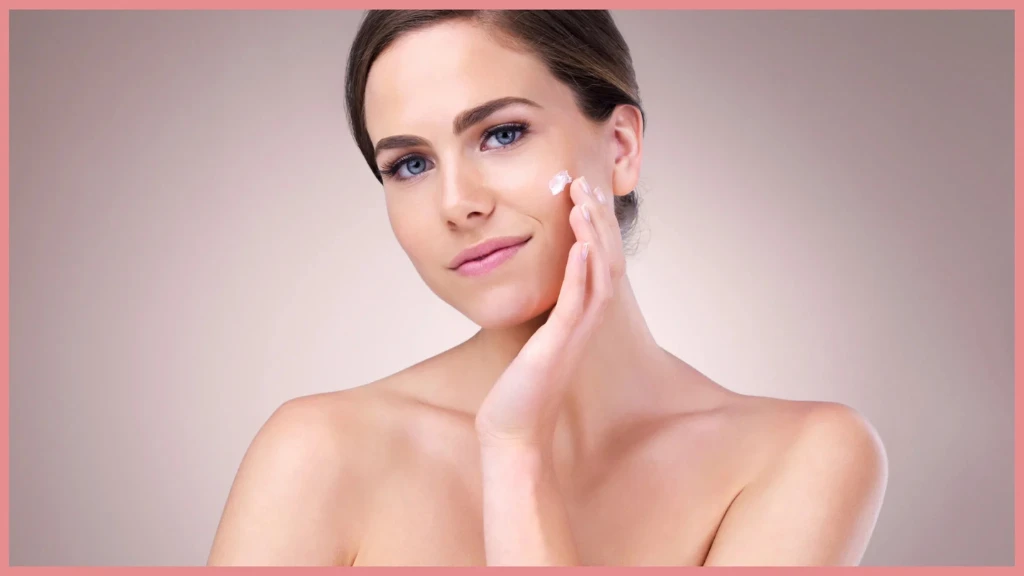What Do Face Serums Actually Do?

Okay, I need you to trust me when I start explaining what a quality serum can do. It may seem too good to be true but you really can unlock your skin's full potential with just a few drops.
Serums are like a secret weapon in the realm of skincare. It's a little extra something that can help you meet your skin’s unique needs, whether it’s hydration, anti-aging, or brightening. I remember when I first started using a serum – my skin felt fresher, and I could actually see it becoming smoother over time.
But what exactly is a serum? Essentially, serums are highly concentrated formulas packed with active ingredients designed to deliver results quickly. They’re lightweight, fast-absorbing, and can make a real difference without feeling heavy on your skin.
Serums are concentrated skincare products designed to deliver active ingredients deep into the skin. If you’re new to serums, you can also learn about the different types of serums available and how to introduce new skincare products safely.
And with so many types out there, you’re sure to find one tailored to your specific skin needs.
Learn How to Apply Serums Properly!
What Does a Face Serum Do?

Serums stand out because they can penetrate the skin more deeply than thicker products like moisturizers. With smaller molecules, they dive right in, allowing active ingredients to get to work on the deeper layers of your skin.
This means faster, more noticeable results. Whether you're aiming for hydration, anti-aging, or just a smoother complexion, there’s likely a serum that fits the bill.
Hydrating Serums
Hydrating serums are ideal for dry or dehydrated skin. They’re often formulated with ingredients like hyaluronic acid, glycerin, sodium hyaluronate, and vitamin B5, all of which work together to draw moisture to the skin and hold it there.
I like to think of it as giving your skin a big glass of water – these serums help keep your skin looking plump and feeling soft.
Anti-Aging Serums
Anti-aging serums target fine lines, wrinkles, and age spots with ingredients like retinol, vitamin C, peptides, and bakuchiol.
Retinol and bakuchiol, for example, are known for stimulating collagen production, which can keep the skin looking firm and youthful. Vitamin C also offers powerful antioxidant protection, helping to shield skin from damage.
Brightening Serums
For anyone dealing with hyperpigmentation or an uneven skin tone, brightening serums are a fantastic choice.
These typically include ingredients like vitamin C, niacinamide, kojic acid, licorice root extract, and glycolic acid, which work to inhibit melanin production and promote cell turnover, revealing a brighter, more even complexion.
Acne-Fighting Serums
Acne-fighting serums focus on ingredients like salicylic acid, tea tree oil, niacinamide, and zinc to target breakouts, unclog pores, and control excess oil.
These ingredients work in harmony to keep skin clear, reduce inflammation, and prevent future blemishes.
Soothing Serums
If you have sensitive or irritated skin, a soothing serum can be a lifesaver.
Ingredients such as Centella Asiatica, green tea, chamomile skin, and niacinamide help calm redness and reduce irritation, creating a more balanced and comfortable complexion.
Texture-Improving Serums
Texture-improving serums are perfect for refining and smoothing the skin’s surface.
Glycolic acid and other alpha hydroxy acids (AHAs) exfoliate gently, promoting cell renewal and minimizing the appearance of pores for a smoother, more refined complexion.
Benefits of Using a Face Serum
Serums bring a lot to the table, making them an essential step for anyone serious about skincare.
- Potent and Targeted: They deliver a higher concentration of active ingredients, making it easier to address specific skin concerns like fine lines or dark spots.
- Enhanced Absorption: With their lightweight texture, serums can penetrate deeper, ensuring that ingredients are absorbed and used more effectively.
- Intense Hydration: Hydrating serums can seriously boost moisture levels, giving skin that fresh, plump look.
- Lightweight and Versatile: Suitable for all skin types, even those prone to acne or sensitivity.
- Antioxidant Protection: Many serums contain antioxidants like vitamins C and E, which protect skin from environmental stressors and premature aging.
- Improved Skin Texture: Over time, serums can help create a smoother, more refined complexion by addressing pores and uneven texture.
- Supports Your Skincare Routine: Using a serum can also help your moisturizer and other products work more effectively.
How to Choose the Right Serum

Choosing a serum can feel overwhelming, but a few key tips can guide you toward the perfect one for your skin.
Know Your Skin
Start by identifying your skin type – is it oily, dry, combination, or sensitive? Knowing your primary concerns (e.g., wrinkles, dullness, acne) will help narrow down your options.
Read the Label
Look closely at ingredient lists. For hydration, seek hyaluronic acid or glycerin; for anti-aging, look for retinol or peptides. Avoid ingredients that might irritate your skin.
Consider Your Budget
Serums come in various price ranges, so there’s likely something out there that fits both your skin needs and your wallet.
Patch Test
Before applying a new serum on your face, test a small amount on your inner arm. This helps to catch any potential allergic reactions without risking irritation on your face.
Go With Reputable Brands
Opt for brands known for their quality and research-backed formulations. Positive reviews can also be a good indicator of effectiveness.
Formulation Matters
Think about whether a water-based, oil-based, or gel-based serum would work best for your skin type and personal preferences.
How to Use a Face Serum
Using a serum is pretty straightforward, but there are a few tips to keep in mind to get the most out of it.
- Start with a Clean Face: Always apply serum on clean skin, either in the morning or at night.
- Apply Toner (Optional): A toner can help balance your skin’s pH before you apply your serum.
- Use Just a Few Drops: A little goes a long way – typically, 2-3 drops are enough for your entire face.
- Massage Gently: Use gentle upward motions to help the serum absorb.
- Let It Absorb: Give the serum a few minutes to sink in before applying your moisturizer.
- Always Apply Sunscreen: Especially if you’re using serums with active ingredients like retinol or vitamin C, sunscreen is essential during the day to protect your skin.
Potential Drawbacks of Face Serums
As fantastic as serums are, they aren’t without their quirks.
Irritation
Serums often contain potent ingredients, which can sometimes cause irritation, particularly for those with sensitive or reactive skin. Ingredients like vitamin C, retinol, and glycolic acid are especially powerful and can lead to redness, stinging, or flakiness if your skin isn’t used to them.
This is why patch testing is crucial – try a small amount on your inner arm or behind your ear to check for any reaction before applying it to your face.
Not a Replacement for Moisturizer
Despite their benefits, serums aren’t designed to replace moisturizers. While serums deliver active ingredients, they typically lack the emollients and occlusives that seal moisture into the skin.
Without a moisturizer on top, your skin may actually lose hydration over time, leading to dryness. Think of serums as boosters rather than stand-alone hydration solutions; they work best when layered under a good moisturizer to lock everything in.
Potential for Overuse
It’s tempting to use more serum than necessary, especially if you’re eager to see results. I know this first hand because I'm always so anxious to try a new product. However, applying too much or layering incompatible ingredients – like combining strong acids with retinol – can overload your skin, causing irritation or even breakouts.
Many serums are designed to be used sparingly; following the product instructions closely is key. Overuse can also lead to ingredient “fatigue,” where your skin stops responding positively or reacts adversely to the ingredients.
Specific Ingredient Concerns
Certain ingredients in serums require special attention due to their unique properties. For example, retinol is known to increase photosensitivity, meaning your skin becomes more sensitive to the sun, so it’s best used at night and followed by sunscreen during the day.
Exfoliating acids, like AHAs and BHAs, can cause a “purge,” which is basically a temporary phase where the skin appears to break out as it sheds impurities. Understanding these ingredient-specific quirks can help you avoid unpleasant surprises and get the most out of your serum.
Additional Tips for Using Face Serums
When it comes to serums, a few extra tips can make a big difference in your routine.
- Introduce Gradually: Start with one serum and add others only as needed.
- Layer Thoughtfully: Go from lightest to heaviest consistency.
- Be Patient: Visible results can take several weeks.
- Store Properly: Keep serums away from heat and light.
- Use Sparingly: Follow instructions on how much to apply.
- Listen to Your Skin: If you experience irritation, reduce the frequency or stop using it.
- Combine with Care: Avoid using too many actives at once, as this can be harsh on the skin.
Conclusion
I love my serums and one of my favourites is The Ordinary Salicylic Acid 2% Anhydrous Solution Pore Clearing Serum from Amazon.com, and I constantly recommend it to anyone who will listen. It offers a simple yet effective way to address specific skin concerns and elevate your skincare routine. With the right serum and a little patience, you’ll likely see a noticeable difference in your skin’s appearance and feel.
So go ahead – experiment, find what works, and enjoy the journey toward your best skin yet. I'm rooting for you!



